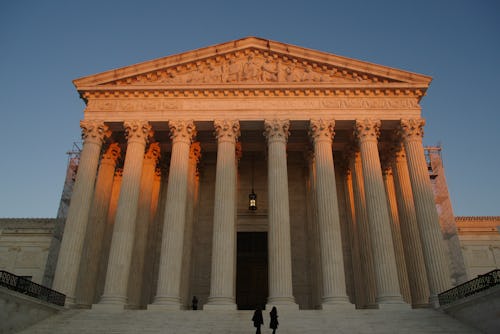
On December 18, 1944, the Supreme Court delivered a landmark decision in the case of Ex parte Endo, which has reverberated through history as a crucial moment in the fight for civil liberties in the United States. This ruling came during World War II, a time when fear and prejudice against Japanese Americans reached alarming heights. The backdrop of this case is rooted in the broader context of Korematsu v. United States, where the government upheld the internment of Japanese Americans under Executive Order 9066, citing national security concerns amid wartime hysteria.
The Case Background
The plaintiff, Mitsuye Endo, was a Japanese American who had been forcibly relocated to an internment camp despite being an American citizen. Her legal battle was not just about her personal plight; it symbolized the struggle against unjust government actions fueled by racial discrimination and paranoia. Endo's legal team argued that her detention was unconstitutional as it violated her rights under the Fifth Amendment, which protects against deprivation of liberty without due process.
A Turning Point for Justice
In a unanimous decision delivered by Justice William O. Douglas, the Supreme Court ruled that the government could not detain loyal citizens without just cause. The ruling effectively stated that Mitsuye Endo could not be held in an internment camp because there was no evidence to suggest she posed any threat to national security. This pivotal moment not only granted freedom to Endo but also marked a significant shift away from the precedent set by Korematsu.
The Aftermath and Its Relevance Today
While Ex parte Endo did not immediately dismantle all aspects of Japanese American internment — many individuals remained detained until after the war — it laid down an essential marker for future civil rights cases. It highlighted how fear can lead to systemic injustices and served as an early reminder that constitutional protections must prevail even during times of crisis.
In recent years, discussions around Ex parte Endo have resurfaced as America grapples with issues regarding immigration policies and racial profiling post-9/11. The echoes of this case remind us that history often repeats itself if we do not remain vigilant against discriminatory practices.
Lessons Learned from History
The legacy of Ex parte Endo is particularly relevant today as we witness similar patterns emerge in contemporary society — whether through discussions about surveillance laws or debates surrounding immigration reform. It serves as an important cautionary tale about how easily civil liberties can be compromised under pressure from fear-driven narratives.
Understanding cases like Ex parte Endo fosters critical dialogue around civil rights and encourages us to advocate for justice proactively rather than reactively. By studying past injustices, we equip ourselves with knowledge that empowers our communities today — ensuring that such violations do not become normalized again.







